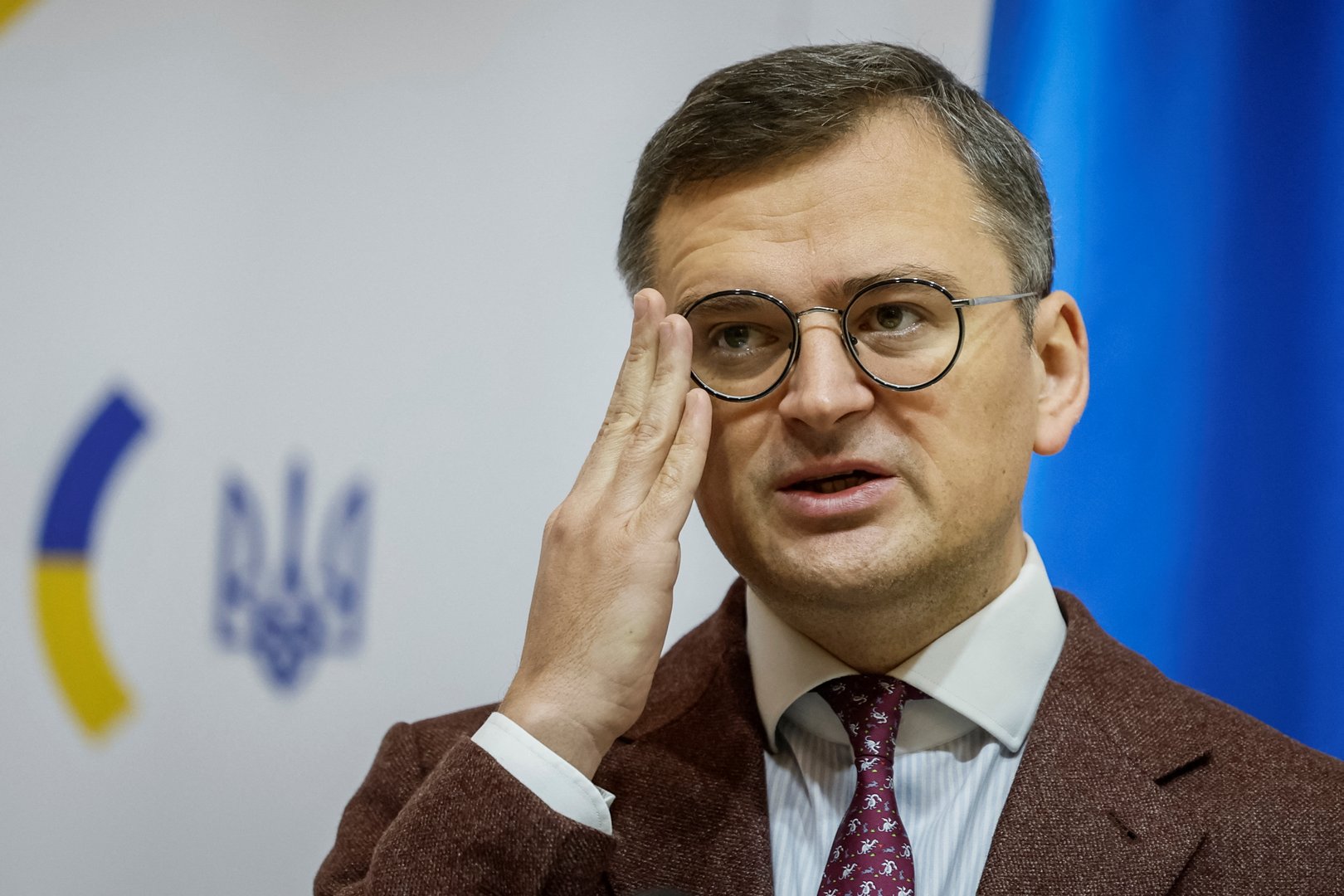Ukrainian Foreign Minister Dmytro Kuleba said on Monday it would be “devastating” for Kyiv and the European Union if EU leaders do not give his country the green light for membership talks at a summit this week.
The leaders meet on Thursday and Friday to decide whether to launch membership negotiations with Kyiv and grant it 50 billion euros ($53.8 billion) of economic support, and how to continue military aid for Ukraine’s defence against Russia’s invasion.
“The mother of all decisions, the most important decision is of course the decision on opening accession talks,” Kuleba said, arriving for a meeting with EU foreign ministers in Brussels.
“I cannot imagine, I don’t even want to talk about the devastating consequences that will occur shall the (European) Council fail to make this decision,” he said in English.
Such a decision would show the EU is unable to follow through on historical commitments, he said.
Securing new financial assistance from Europe is critical as doubts mount over future U.S. support for Kyiv, which relies heavily on Western financial aid. Ukrainian President Volodymyr Zelenskiy is set to visit Washington this week.
Hungarian Prime Minister Viktor Orban, who boasts about his ties with Russian President Vladimir Putin, has threatened to veto the aid and enlargement talks at the Dec. 14-15 summit.
All these decisions – as well as another on what would be the EU’s 12th package of sanctions against Russia since Moscow’s full-scale invasion in February 2022 – require the unanimous backing of all the bloc’s 27 countries.
Hungary has already watered down sanctions against Russia and last December vetoed a deal to grant Ukraine 18 billion euros in 2023.
Budapest eventually allowed that assistance through after haggling for days over EU aid to Hungary, which had been blocked over concerns of democratic backsliding under Orban.
WHAT ORBAN WANTS
As the EU finds itself again seeking to win Orban’s support for Ukraine, the executive European Commission is expected to unlock Budapest’s access to 10 billion euros this week.
In opposing opening membership negotiations with Kyiv, Orban initially complained about Ukraine’s treatment of Ukraine’s Hungarian minority. He has since said Ukraine is too corrupt and not ready to join the EU.
Instead of deciding on new aid to Ukraine, he demanded the bloc hold a “strategic discussion” on its support for Kyiv.
“We did our homework,” Kuleba said, pointing to reforms of the judicial and education systems demanded by the EU. “We expect the European Union to do its homework.”
Diplomats said related attempts by Georgia and Bosnia to advance their hopes of joining the EU – backed by Orban – would fall through if Hungary vetoed Ukraine. One suggested “he would know exactly when it was time to climb down the tree.”
Those expecting Orban to budge described a possible compromise throwing the start on negotiations with Ukraine to March once final conditions are met.
Others worry Orban may not be persuaded. He will be up against German Chancellor Olaf Scholz, among others, who has said Berlin backs starting negotiations for Kyiv to join the EU someday.
A ruling last month by Germany’s constitutional court further complicated the EU talks by blowing a big hole in its richest member’s budget.
If Hungary vetoes assigning 50 billion euros to Ukraine through the bloc’s shared budget, the other EU countries could extend their contributions bilaterally to Kyiv – a more expensive option.
Uncertainty also hangs over the future of EU military aid to Ukraine, where Russia controls nearly a fifth of territory.
A proposal to use an EU-run military fund – the European Peace Facility (EPF) – to give Ukraine 20 billion euros in arms and other support over the next four years faces resistance from Germany.
Some EU states want the summit at least to pledge five billion euros to Ukraine via the EPF next year, a plan EU foreign ministers will discuss with Kuleba.







Click here to change your cookie preferences